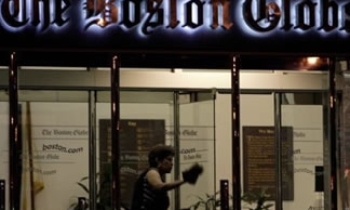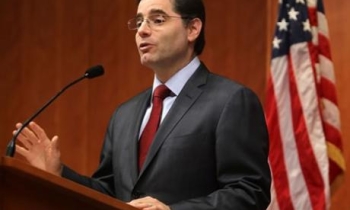Press freedom in the United States was dealt a blow last week with the Supreme Court's refusal to hear an appeal by two journalists who face jail for refusing to reveal their confidential sources and ignoring subpoenas to testify before a grand jury. The decision has several IFEX members concerned that the decision gives authoritarian regimes further ammunition to justify crackdowns on the press.
"New York Times" journalist Judith Miller and "Time" magazine reporter Matthew Cooper had been ordered by a U.S. District Court judge to testify by 6 July or face jail sentences of up to 18 months on contempt of court charges. They also face fines of US$1,000 a day. The journalists were subpoenaed last year by U.S. special prosecutor Patrick Fitzgerald, who was appointed to investigate the leaking of CIA operative Valerie Plame's identity to the media.
Miller says she is prepared to go to jail rather than reveal her sources or testify. Against the objections of Cooper, "Time" magazine editor Norman Pearlstine has agreed to turn over Cooper's documents to the special prosecutor. However, Fitzgerald says Cooper could still face jail if he does not agree to testify before a grand jury.
The Committee to Protect Journalists (CPJ) says US prosecutors and judges are setting an unfortunate example for the rest of the world by going after journalists. In Venezuela, for example, President Hugo Chávez cited the Miller and Cooper cases when answering international critics who said the country's new media law severely restricted broadcast news coverage.
The Inter American Press Association (IAPA) says that without safeguards guaranteeing the confidentiality of journalists' sources, the media's ability to inform the public about important issues will be weakened.
The Supreme Court decision has also attracted criticism from the Organization of American States' Special Rapporteur on Free Expression. Eduardo Bertoni says the threat of legal action against journalists and their sources will ultimately produce a chilling effect on news media. "The right to confidentiality is essential to a journalist's work in performing the important public service of collecting and disseminating information," he argues.
Bertoni notes that the Declaration of Principles on Freedom of Expression, which has been endorsed by OAS member states, including the U.S., says "Every social communicator has the right to keep his/her source of information, notes, personal and professional archives confidential."
The International Federation of Journalists (IFJ) and the Society of Professional Journalists (SPJ) plan to hold nation-wide protests in support of Miller and Cooper on 6 July (see http://www.newsguild.org/ and http://www.spj.org/news.asp?ref=510).
Meanwhile, Reporters Without Borders (Reporters sans frontières, RSF) and PEN American Center are urging the U.S. Congress to support a proposed federal shield law that guarantees journalists an "absolute privilege" so they cannot be compelled to disclose their sources. The Free Flow of Information Act would extend to journalists at the federal level the same protections they enjoy under similar laws in 49 states.









